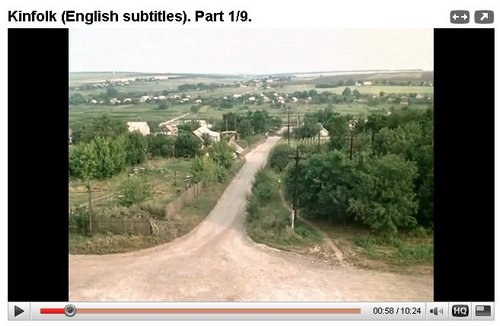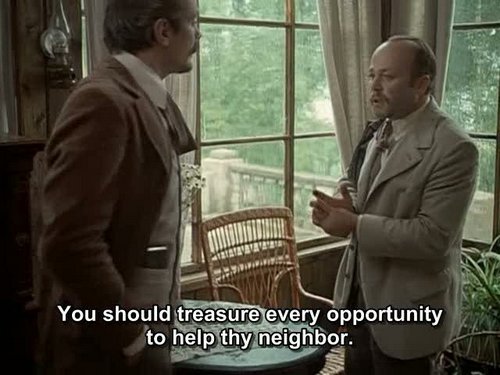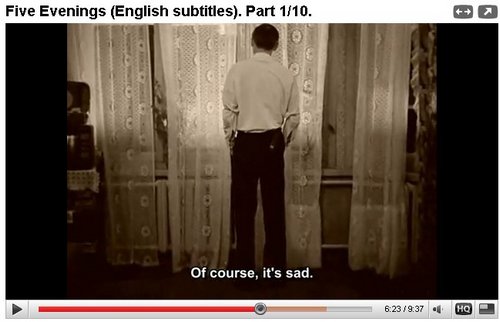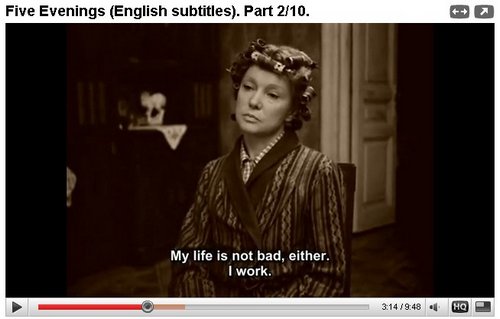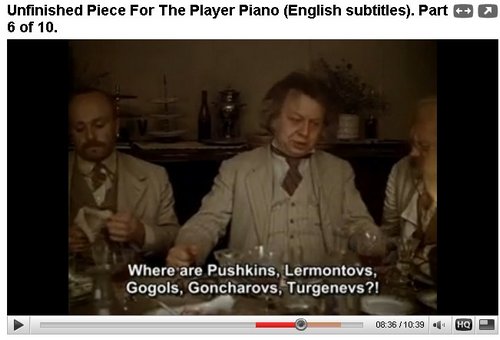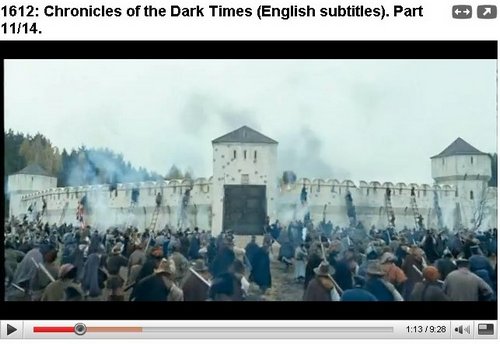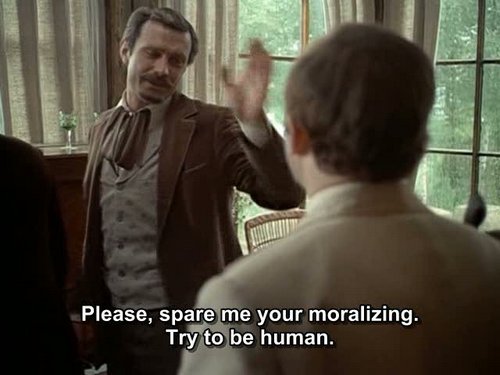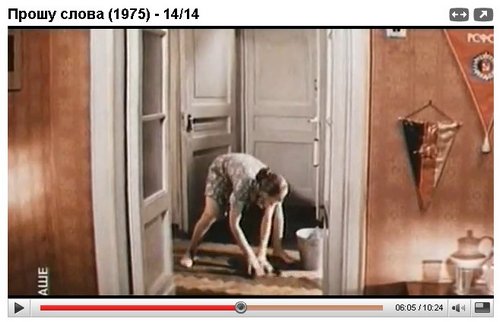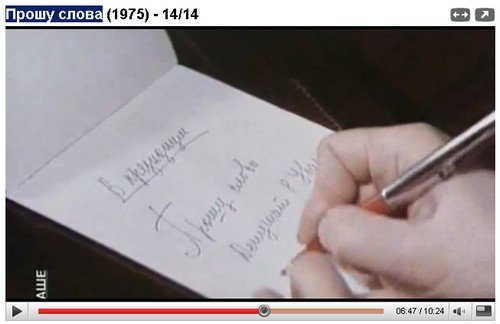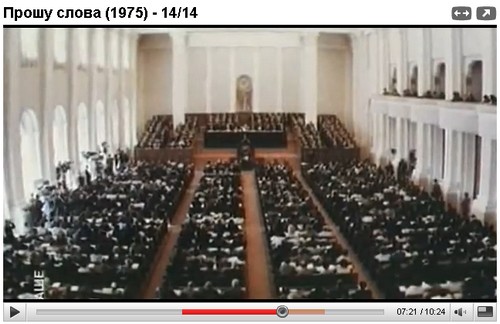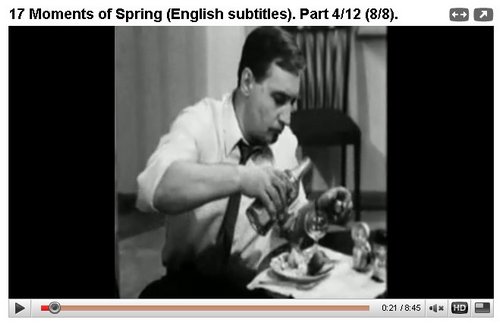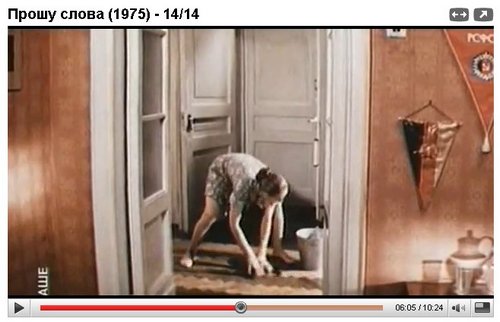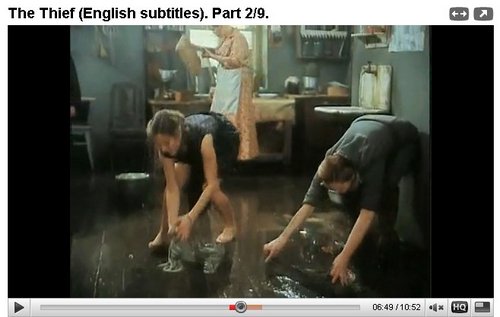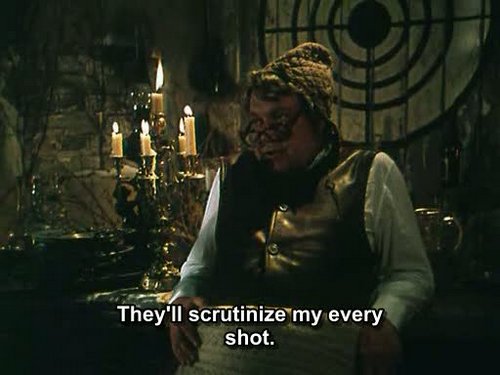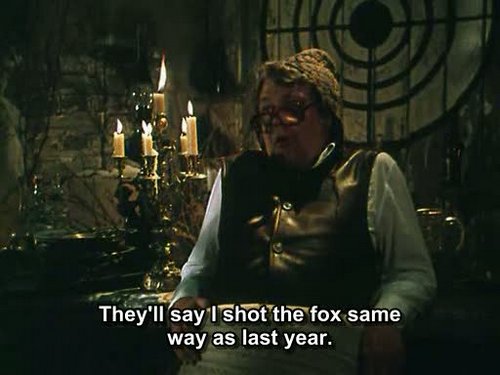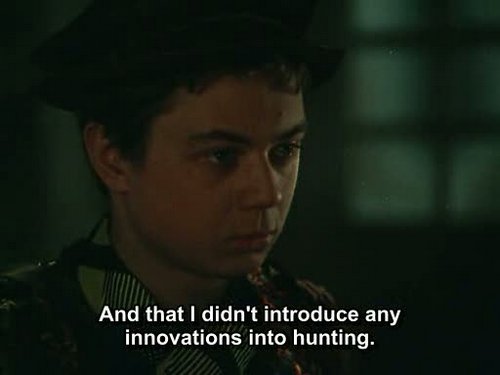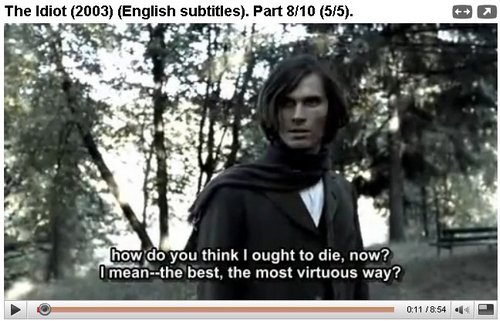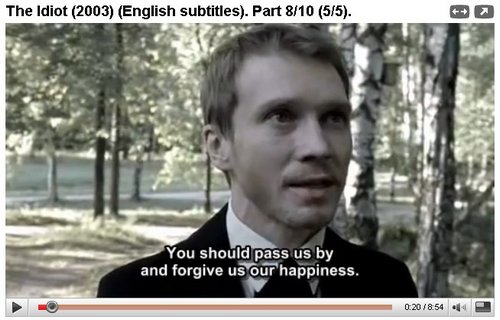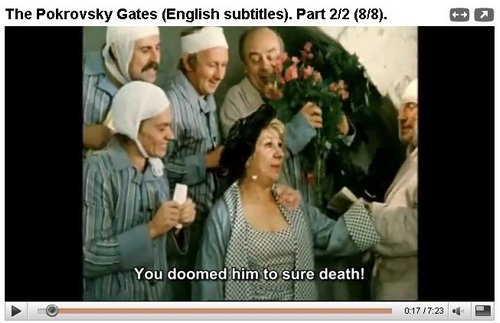
The first time I watched Pokrov Gate, maybe a year ago or so, I thought it was just entertainment — a movie-length situation comedy. After all, while it isn’t hard to imagine that a communal apartment would be a rich source of material, it’s not easy to imagine this situation in real life. (BTW, there are spoilers here. You have been warned.)
Margarita Khobotova dumped her absent-minded, klutzy husband for another guy who was home when her husband wasn’t — dumped a brainy, literary guy for a brawny worker. It’s not too hard to imagine opportunities for that to happen in a kommunalka, though there wasn’t much you could do that your neighbors didn’t know about. But her ex continued to live in the same kommunalka with shared kitchen and bath, though he also had a separate room for himself. It’s a little far-fetched, but there were housing shortages back in the 50s, so people did what they had to do.
And she continued to run her ex’s life, including his attempts at a love life. Well, there is no shortage of domineering women (or men) in the world. If we have them here in America, why not in Russia, too? And there is no shortage of men (or women) who allow themselves to be dominated, though this seems to be an extreme case. But for Margarita’s new guy to be an active participant in this project? It starts to get a little silly, but it’s entertaining in a way that would be possible only if there is some slight connection to reality. And it does have that.
So I thought it was an entertaining film about personal relationships — one that was worth watching again, which we’ve done just this week.
But we weren’t far into it on my 2nd watching when I started to get the idea that this is an allegory of our political situation in the U.S. Margarita Khobotova is like the nanny-staters who think people aren’t competent to make their own decisions and run their own lives. Those people seem to be winning out, even though they have all the charm and finesse of Margarita.
But then, at the very end, I began to suspect that the comparison is not just something that I came up with by myself. The film is not just about personal relationships. Either the writer (Leonid Zorin) or the director (Mikhail Zozakov) or perhaps both had put in a subtle political message, too. (This was in 1982 when there were still limits on what they could say.)
All the way through the film is full of laughs. But suddenly, at the end, it gets a bit serious. In the screen shot above, Margarita Khobotova complains to those who helped her ex get away from her clutches: “You doomed him to sure death.”
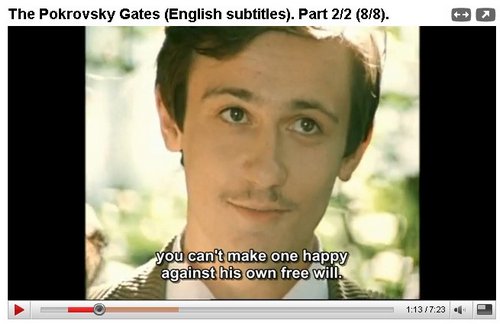
And for the first and only time in the film, Kostik gets serious. He has up to this time been having a great time as a student who has come to the big city to study history. His aunt dotes on him, the communal phone rings constantly with the calls of his many girlfriends, and he is full of jokes and one-liners. But suddenly he quits joking when Margarita accuses him of being too young to know better. He tells her, “Yes, I’m young. But believe a historian. You can’t make someone happy against his own free will.”
“Believe a historian.” Ah, yes. We all know of historical examples of attempts to do just that. Some of us have had to live with them.
